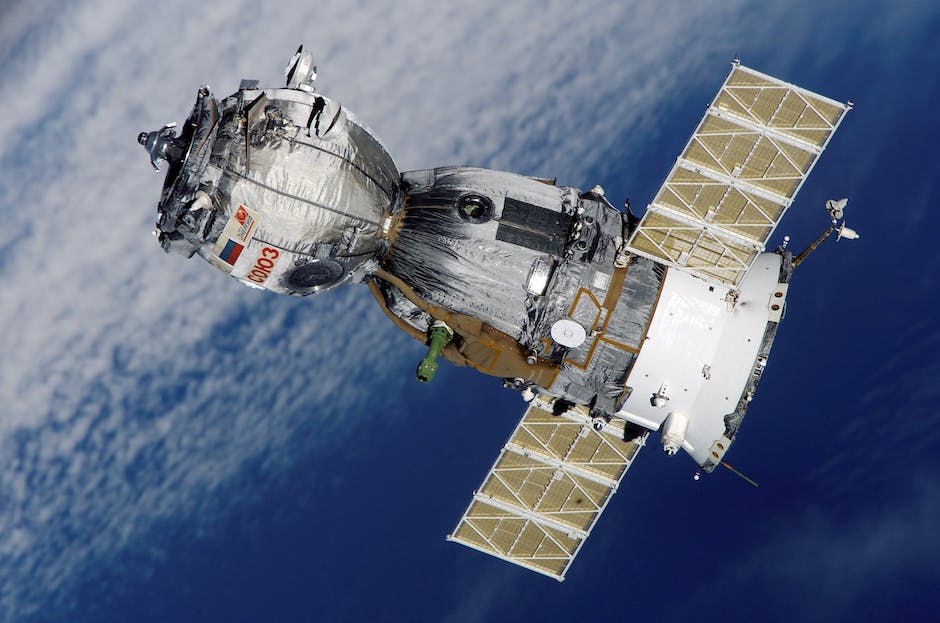Table of Contents
“Arab Leaders in Space Exploration: Pioneering New Frontiers”
Introduction
Arab Leaders in Space Exploration: Pioneering New Frontiers
Space exploration has long been a symbol of human curiosity and ambition, pushing the boundaries of what we know and inspiring generations to dream big. In recent years, Arab leaders have emerged as pioneers in this field, demonstrating their commitment to advancing scientific knowledge and technological innovation. With ambitious space programs and groundbreaking missions, these Arab nations are making significant strides in space exploration, paving the way for a new era of discovery and progress. In this article, we will delve into the achievements and aspirations of Arab leaders in space exploration, highlighting their contributions to the global scientific community and their determination to explore new frontiers.
The Role of Arab Leaders in Advancing Space Exploration

The Role of Arab Leaders in Advancing Space Exploration
Space exploration has always been a field dominated by a few major players, such as the United States, Russia, and China. However, in recent years, Arab leaders have been making significant strides in advancing space exploration, pioneering new frontiers and establishing themselves as key players in this exciting field.
One of the most notable Arab leaders in space exploration is the United Arab Emirates (UAE). In 2019, the UAE made history by becoming the first Arab country to send a mission to Mars. The Emirates Mars Mission, also known as the Hope Probe, was launched with the aim of studying the Martian atmosphere and climate. This ambitious project not only showcased the UAE’s technological capabilities but also demonstrated their commitment to pushing the boundaries of space exploration.
Another Arab leader in space exploration is Saudi Arabia. The Saudi Space Commission was established in 2018 with the goal of developing a national space strategy and promoting space research and development. The commission has been actively collaborating with international partners and investing in cutting-edge technologies to support their space exploration ambitions. Saudi Arabia’s commitment to space exploration is evident in their plans to build a spaceport and launch their own satellites in the near future.
Egypt is also making significant progress in the field of space exploration. The Egyptian Space Agency was established in 2019 to coordinate and promote space activities in the country. Egypt has been actively participating in international space missions and collaborating with other countries to develop its space capabilities. The country’s efforts in space exploration are driven by a desire to contribute to scientific research and technological advancements, as well as to inspire the next generation of scientists and engineers.
In addition to these countries, other Arab leaders are also making their mark in space exploration. Jordan, for example, has been actively involved in satellite development and has launched its first satellite, JY1-SAT, in 2019. This satellite, built by Jordanian students, aims to promote amateur radio and provide educational opportunities for students interested in space science.
The advancements made by Arab leaders in space exploration are not only significant in terms of technological achievements but also have broader implications. These countries are using space exploration as a means to diversify their economies and reduce their dependence on oil. By investing in space research and development, Arab leaders are creating new opportunities for innovation, job creation, and economic growth.
Furthermore, the involvement of Arab leaders in space exploration is also fostering international collaboration and cooperation. Arab countries are actively partnering with established space agencies and organizations, sharing knowledge and resources, and working together to tackle common challenges. This collaboration not only benefits the participating countries but also contributes to the global advancement of space exploration.
In conclusion, Arab leaders are playing a crucial role in advancing space exploration and pioneering new frontiers. The UAE, Saudi Arabia, Egypt, and other Arab countries are investing in cutting-edge technologies, launching ambitious missions, and collaborating with international partners. Their efforts are not only pushing the boundaries of space exploration but also driving economic diversification and fostering international cooperation. As Arab leaders continue to make strides in this field, they are inspiring the next generation of scientists and engineers and positioning themselves as key players in the exciting world of space exploration.
Challenges Faced by Arab Leaders in Space Exploration
Challenges Faced by Arab Leaders in Space Exploration
Space exploration has always been a challenging endeavor, requiring immense resources, advanced technology, and a dedicated team of scientists and engineers. Arab leaders, in their pursuit of pioneering new frontiers, have faced their fair share of challenges in the field of space exploration. These challenges can be categorized into three main areas: technological, financial, and political.
Technological challenges have been a major hurdle for Arab leaders in space exploration. Developing the necessary technology to launch and sustain space missions is a complex and expensive process. Arab countries have had to invest heavily in research and development to catch up with more established space-faring nations. This has required collaboration with international partners and the acquisition of advanced technology from abroad. However, the transfer of technology has not always been smooth, as some countries have been reluctant to share their expertise. Arab leaders have had to overcome these obstacles by investing in their own research and development capabilities, fostering innovation, and building a skilled workforce.
Financial challenges have also posed a significant obstacle for Arab leaders in space exploration. The cost of space missions is astronomical, with each launch costing millions, if not billions, of dollars. Arab countries, with limited resources compared to their counterparts in the West, have had to carefully allocate their budgets to fund space exploration programs. This has often meant making difficult choices and prioritizing certain projects over others. Additionally, the economic instability in the region has further strained financial resources, making it even more challenging to invest in space exploration. Despite these financial constraints, Arab leaders have shown determination and resilience in their pursuit of space exploration, seeking partnerships and collaborations to share the financial burden.
Political challenges have also played a role in hindering Arab leaders’ progress in space exploration. The geopolitical landscape in the Middle East is complex and often volatile, with conflicts and tensions that can impact scientific cooperation and collaboration. Political instability can disrupt long-term planning and investment in space programs, as resources are redirected towards more immediate needs. Additionally, international sanctions and embargoes have limited the ability of Arab countries to access certain technologies and resources necessary for space exploration. Arab leaders have had to navigate these political challenges by fostering diplomatic relations, engaging in international collaborations, and advocating for the peaceful use of space.
Despite these challenges, Arab leaders have made significant strides in space exploration. The United Arab Emirates (UAE), for example, successfully launched its Mars mission, the Hope Probe, in 2020. This mission marked a major milestone for the Arab world, as it made the UAE the first Arab country to reach Mars. The UAE’s success serves as an inspiration for other Arab nations, demonstrating that with determination, investment, and collaboration, space exploration is within reach.
In conclusion, Arab leaders in space exploration have faced numerous challenges in their pursuit of pioneering new frontiers. Technological, financial, and political obstacles have tested their resolve and required innovative solutions. However, despite these challenges, Arab leaders have shown resilience and determination, making significant progress in space exploration. As they continue to invest in research and development, foster international collaborations, and navigate the geopolitical landscape, Arab leaders are paving the way for a future where the Arab world plays a prominent role in space exploration.
Achievements and Contributions of Arab Leaders in Space Exploration
Arab Leaders in Space Exploration: Pioneering New Frontiers
Space exploration has always been a field dominated by a few major players, but in recent years, Arab leaders have been making significant strides in this area. Their achievements and contributions have not only brought pride to their respective nations but have also pushed the boundaries of what is possible in space exploration.
One of the most notable Arab leaders in space exploration is Sheikh Mohammed bin Rashid Al Maktoum, the Vice President and Prime Minister of the United Arab Emirates (UAE). Under his leadership, the UAE launched its first mission to Mars in July 2020. The mission, named the Emirates Mars Mission or “Hope Probe,” aims to study the Martian atmosphere and climate. This ambitious project showcases the UAE’s commitment to advancing scientific knowledge and its determination to become a global player in space exploration.
Another Arab leader who has made significant contributions to space exploration is Prince Sultan bin Salman bin Abdulaziz Al Saud of Saudi Arabia. In 1985, he became the first Arab and Muslim astronaut to travel to space as part of the crew of the Space Shuttle Discovery. This historic achievement not only inspired a generation of Arab youth but also demonstrated the potential of Arab nations in the field of space exploration.
In addition to individual achievements, Arab leaders have also collaborated on joint space exploration projects. The Arab Space Cooperation Group (ASCG), established in 2009, aims to promote cooperation among Arab nations in the field of space exploration. Through this initiative, Arab leaders have been able to pool their resources and expertise to undertake ambitious projects that would have been challenging for individual nations to accomplish.
One such project is the Arab Satellite Communications Organization’s (Arabsat) launch of the Arabsat-6A satellite in 2019. This satellite, built by Lockheed Martin, provides advanced communication services to the Arab world and beyond. The successful launch of this satellite demonstrates the Arab leaders’ commitment to utilizing space technology for the benefit of their nations and the wider region.
Arab leaders have also recognized the importance of inspiring future generations to pursue careers in space exploration. The Mohammed bin Rashid Space Centre (MBRSC) in the UAE, for example, has established various educational programs to engage students in space-related activities. These initiatives aim to foster a passion for science and technology among Arab youth and encourage them to pursue careers in the field of space exploration.
Furthermore, Arab leaders have been actively participating in international space conferences and forums, where they share their experiences and expertise with the global space community. This engagement not only enhances the Arab leaders’ knowledge and understanding of space exploration but also allows them to contribute to the development of international space policies and regulations.
In conclusion, Arab leaders have made significant achievements and contributions in the field of space exploration. Their endeavors, such as the UAE’s Mars mission and Prince Sultan bin Salman’s historic spaceflight, have not only brought pride to their nations but have also pushed the boundaries of what is possible in space exploration. Through collaboration and educational initiatives, Arab leaders are inspiring future generations to pursue careers in this exciting field. As they continue to participate in international space conferences and forums, Arab leaders are making their voices heard and contributing to the global space community. With their pioneering spirit and determination, Arab leaders are paving the way for a future where space exploration knows no boundaries.
Future Prospects and Collaborations for Arab Leaders in Space Exploration
Future Prospects and Collaborations for Arab Leaders in Space Exploration
As Arab leaders continue to make significant strides in space exploration, the future prospects for their involvement in this field are promising. With a rich history of scientific and technological advancements, Arab nations are well-positioned to contribute to the exploration of new frontiers beyond Earth. Collaborations with international space agencies and investments in research and development are key factors that will shape the future of Arab leaders in space exploration.
One of the most notable future prospects for Arab leaders in space exploration is the establishment of the Arab Space Agency. This agency aims to coordinate and enhance the efforts of Arab nations in space exploration, fostering collaboration and knowledge sharing among member countries. By pooling resources and expertise, Arab leaders can accelerate their progress in this field and achieve greater success in space missions.
Collaborations with international space agencies, such as NASA and the European Space Agency (ESA), are also crucial for the future of Arab leaders in space exploration. These partnerships provide Arab nations with access to advanced technologies, scientific expertise, and collaborative opportunities. Through joint missions and research projects, Arab leaders can learn from the experiences of established space agencies and contribute their unique perspectives and knowledge to the global space community.
Investments in research and development are another key aspect that will shape the future of Arab leaders in space exploration. By allocating resources to scientific research and technological advancements, Arab nations can develop their own capabilities in space exploration. This includes the development of satellites, launch vehicles, and other space-related technologies. By investing in research and development, Arab leaders can reduce their dependence on foreign technologies and establish themselves as key players in the global space industry.
Education and training programs are also essential for the future prospects of Arab leaders in space exploration. By nurturing a new generation of scientists, engineers, and astronauts, Arab nations can ensure a sustainable and long-term presence in space exploration. Scholarships, internships, and exchange programs can provide Arab students with opportunities to gain hands-on experience and learn from leading experts in the field. By investing in education and training, Arab leaders can build a strong foundation for future advancements in space exploration.
Furthermore, the future prospects for Arab leaders in space exploration extend beyond Earth’s orbit. With the increasing interest in lunar and Mars missions, Arab nations have the potential to contribute to these ambitious endeavors. The establishment of lunar bases, the exploration of Martian landscapes, and the search for signs of life on other planets are all areas where Arab leaders can make significant contributions. By participating in international missions and conducting their own exploratory missions, Arab nations can pioneer new frontiers in space exploration.
In conclusion, the future prospects for Arab leaders in space exploration are bright. Through the establishment of the Arab Space Agency, collaborations with international space agencies, investments in research and development, education and training programs, and participation in lunar and Mars missions, Arab nations can continue to make significant contributions to the exploration of new frontiers beyond Earth. By leveraging their scientific and technological capabilities, Arab leaders have the potential to shape the future of space exploration and inspire future generations to reach for the stars.
Q&A
1. What is the topic of “Arab Leaders in Space Exploration: Pioneering New Frontiers”?
The topic is Arab leaders’ involvement in space exploration.
2. What is the main focus of the article?
The main focus is on the pioneering efforts of Arab leaders in space exploration.
3. What does the article highlight about Arab leaders in space exploration?
The article highlights the contributions and advancements made by Arab leaders in the field of space exploration.
4. What is the significance of Arab leaders’ involvement in space exploration?
Arab leaders’ involvement in space exploration signifies their commitment to advancing scientific knowledge and technological capabilities in the region.
Conclusion
In conclusion, Arab leaders have been actively involved in space exploration, pioneering new frontiers. Through strategic investments, partnerships, and the establishment of space agencies, Arab countries have made significant progress in this field. They have successfully launched satellites, conducted scientific research, and collaborated with international space agencies. Arab leaders recognize the importance of space exploration for scientific advancements, national development, and inspiring future generations. With their continued commitment and efforts, Arab countries are poised to make even greater contributions to space exploration in the future.



